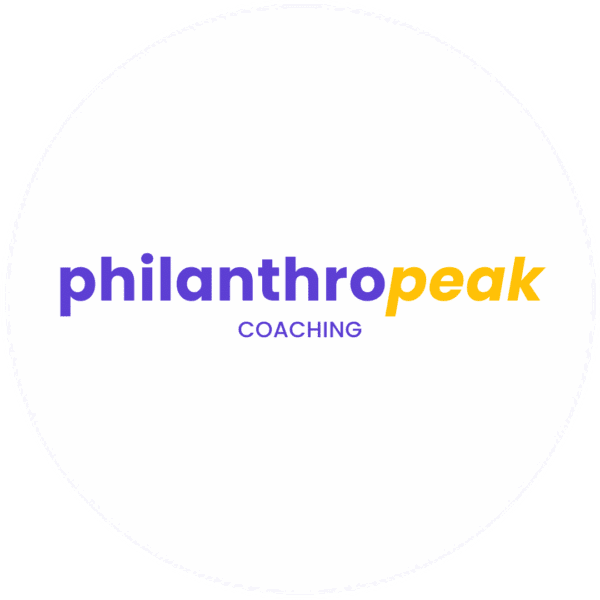
Why Community Support Matters for Adults with ADHD: Enhancing Lives Through Connection
Community support plays a crucial role in the lives of adults with ADHD, helping them navigate daily challenges and enhancing their overall well-being. By fostering connections with others who understand their experiences, individuals can find encouragement, share resources, and build resilience. This article explores the significance of community support, the benefits of peer networks, and how these connections can lead to improved life skills and personal growth.
Key Takeaways
Table of Contents
Toggle- Community support is vital for adults with ADHD, providing a sense of belonging and understanding.
- Peer networks can offer practical advice and emotional support, helping individuals manage their challenges more effectively.
- Sharing experiences within a community can inspire growth and resilience, encouraging individuals to celebrate their successes.
- Overcoming stigma and ensuring inclusivity are essential for creating effective support systems for adults with ADHD.
- Family and friends play a crucial role in providing support, fostering open communication, and helping individuals navigate their ADHD journey.
Understanding the Importance of Community Support for Adults with ADHD

The Role of Community in Managing ADHD
Living with ADHD as an adult can sometimes feel like juggling too many balls at once. Having a community around you is like having a safety net. Community support is not just about having people to talk to; it’s about having folks who truly get what you’re dealing with. Whether it’s a local group or an online forum, these connections can help with sharing tips, offering encouragement, and just being there when things get tough.
Benefits of Peer Support Networks
Peer support networks can be a game-changer. Imagine having a group of people who know exactly what you’re going through. Here are some perks:
- Shared Experiences: It’s comforting to know you’re not alone. Others have walked in your shoes and can offer insights.
- Emotional Boost: Being part of a group can lift your spirits on those rough days.
- Practical Advice: People in these networks often have practical tips and tricks that they’ve found helpful.
How Community Support Enhances Daily Life
Community support can make everyday life a little easier. From managing daily tasks to handling stress, having a support system can be a huge relief. It can help you stay organised, remind you of appointments, and even celebrate your small victories. Feeling connected can reduce feelings of isolation and make life’s challenges a bit more manageable.
"Being part of a community isn’t just about getting support; it’s about giving it too. When you share your own story, you might just help someone else feel less alone."
Building Strong Support Networks

Connecting with Local ADHD Support Groups
Finding a local ADHD support group can be a game changer. Imagine walking into a room where everyone just gets it. You share stories, swap tips, and suddenly you don’t feel so alone. These groups often meet weekly or monthly, giving you a chance to build real friendships. Plus, they can point you towards resources you might not have found on your own.
Utilising Online Forums and Resources
The internet is like a treasure chest for ADHD support. You’ve got forums where you can ask questions at 2 AM and someone will reply. Platforms like Reddit or Facebook groups are buzzing with people sharing advice and experiences. And don’t forget about professional coaching sites or webinars that can offer structured help. It’s all about finding what works for you.
The Impact of Professional Coaching
Professional coaching can be a real game changer. Coaches help you figure out what strategies work best for you. They keep you accountable, which is super handy when ADHD makes it hard to stay on track. They can also help you see your strengths and how to use them. Having someone in your corner cheering you on can make a huge difference.
Building a strong support network isn’t just about getting help; it’s about sharing your journey with others who understand.
Sharing Experiences and Success Stories

Learning from Others' Journeys
Alright, so let’s talk about learning from others. Hearing about someone else’s journey can be a game-changer. It’s like, "Hey, they did it, maybe I can too!" You get to see what worked for them, what didn’t, and maybe pick up a few tips along the way. Plus, it’s just nice to know you’re not alone in this ADHD rollercoaster.
Celebrating Small Wins Together
Don’t underestimate the power of a high-five for the little things. Every tiny victory counts, especially when ADHD makes even the simplest tasks feel like climbing Everest. Celebrating these small wins with others can boost your confidence and keep you motivated. It’s like, "Yeah, I remembered to take out the trash today! Go me!"
Inspiration Through Shared Challenges
When you hear about someone else facing the same hurdles and overcoming them, it’s pretty inspiring. It reminds you that challenges aren’t the end of the road. They’re just speed bumps. Sharing these stories can light a fire in you, pushing you to tackle your own challenges head-on.
Building a supportive network isn’t just about getting help—it’s about being part of a community that gets it, that understands what you’re going through, and lifts you up when you need it.
In the end, sharing experiences and success stories isn’t just about the stories themselves. It’s about creating a space where everyone feels heard and supported. It’s about finding strength in numbers and knowing that, together, we can handle whatever ADHD throws our way.
Overcoming Barriers to Effective Community Support
Addressing Stigma and Misunderstandings
Stigma and misunderstandings about ADHD can really mess things up for folks trying to get support. People often just don’t get it, thinking ADHD is just about being hyper or not paying attention. This makes it tough for those with ADHD to reach out for help. To tackle this, we need to spread the word and educate people about what ADHD really is. Having open chats and sharing real stories can help break down these walls.
Ensuring Accessibility and Inclusivity
Making sure everyone can access support is super important. Here are some things to think about:
- Flexible meeting times: Not everyone can do the same 9-to-5, so having meetings at different times can help.
- Various support options: Some folks might prefer online chats, while others like face-to-face meetups.
- Tailored resources: Make sure the info and help available actually fit what people with ADHD need.
Evaluating the Effectiveness of Support Systems
Checking if support systems are doing their job is key. This can be done by:
- Getting feedback from people using the services to see what’s working and what’s not.
- Setting clear goals for what the support should achieve and tracking progress.
- Being ready to change things up if something isn’t working as planned.
Building a support network isn’t just about having people around; it’s about making sure those people actually help you tackle the unique challenges of ADHD.
The Role of Family and Friends in Community Support
Talking to family and friends about ADHD can be a bit tricky. You gotta keep it simple and real. Being open is super important. Tell them what you need without all the fancy words. It’s like, "Hey, sometimes I need reminders or a bit of patience." Keep it chill and honest.
Getting family involved can really help. Maybe they can join in on some activities or just be there for support. Here’s how they can help:
- Encouragement: A little motivation from them goes a long way.
- Understanding: If they know more about ADHD, they can support better.
- Accountability: Checking in on progress can keep things on track.
Creating a space where everyone feels comfy to talk is key. Let them know it’s cool to ask questions. And encourage everyone to share their thoughts and feelings. This way, everyone learns and grows together.
Having a supportive network of family and friends can make a world of difference. It’s not just about help; it’s about sharing the journey.
Enhancing Life Skills Through Community Engagement

Developing Social Skills with Peer Support
Getting better at social stuff is a big deal for adults with ADHD. Hanging out with others in the same boat can really help. You learn by watching and trying things out. Here’s how:
- Watch and Learn: See how others handle social situations.
- Practise Makes Perfect: Role-playing can be a fun way to try new things.
- Feedback is Gold: Listen to what people say about how you’re doing.
"Being around folks who get it can boost your confidence and make socialising less of a headache."
Improving Communication Techniques
Talking and listening can be tough, but you can get better at it. Here are some tricks:
- Active Listening: Really focus on what the other person is saying.
- Ask Questions: It shows you’re interested and helps you understand better.
- Take Your Time: Don’t rush; think before you speak.
Using tech can also help. Apps for reminders and notes can keep you on track.
Building Self-Esteem and Confidence
Feeling good about yourself is key. Here’s how community helps:
- Celebrate Wins: Even the small stuff counts.
- Set Goals: Achieving them boosts your mood.
- Share Stories: Hearing others’ success can inspire you.
Being part of a community where you can share your ups and downs makes a huge difference. It’s about finding your tribe and growing together.
Getting involved in your community can really help you build important life skills. By participating in local events or volunteering, you can learn teamwork, communication, and problem-solving. These experiences not only make you a better person but also prepare you for future challenges. If you want to learn more about how community engagement can enhance your skills, visit our website today!
Conclusion
In summary, the importance of community support for adults with ADHD cannot be overstated. Being part of a supportive group can make a huge difference in managing the challenges that come with ADHD. When individuals connect with others who understand their experiences, they can share advice, celebrate successes, and learn from each other. This sense of belonging not only boosts confidence but also encourages personal growth. Remember, you are not alone on this journey; there are many resources and people ready to help you thrive. By building connections and engaging with your community, you can enhance your life and achieve your goals.
Frequently Asked Questions
What is community support for adults with ADHD?
Community support for adults with ADHD means having a group of people who understand and can help with the challenges of ADHD. This includes friends, family, support groups, and online communities.
How can peer support networks help?
Peer support networks allow adults with ADHD to share their experiences and learn from others. This can provide comfort, new ideas for coping, and a sense of belonging.
What are the benefits of joining local ADHD support groups?
Joining local ADHD support groups helps you meet others who face similar struggles. It can also provide practical advice, emotional support, and opportunities to make new friends.
How can online forums assist adults with ADHD?
Online forums give adults with ADHD a place to discuss their challenges, share tips, and connect with others. They can be a great source of information and support.
What role do family and friends play in supporting someone with ADHD?
Family and friends can provide understanding and encouragement. They can help by learning about ADHD, listening, and being there for the person when they need support.
Why is it important to celebrate small wins in the ADHD community?
Celebrating small wins boosts confidence and motivation. It helps remind everyone in the community that progress is being made, no matter how small it may seem.




